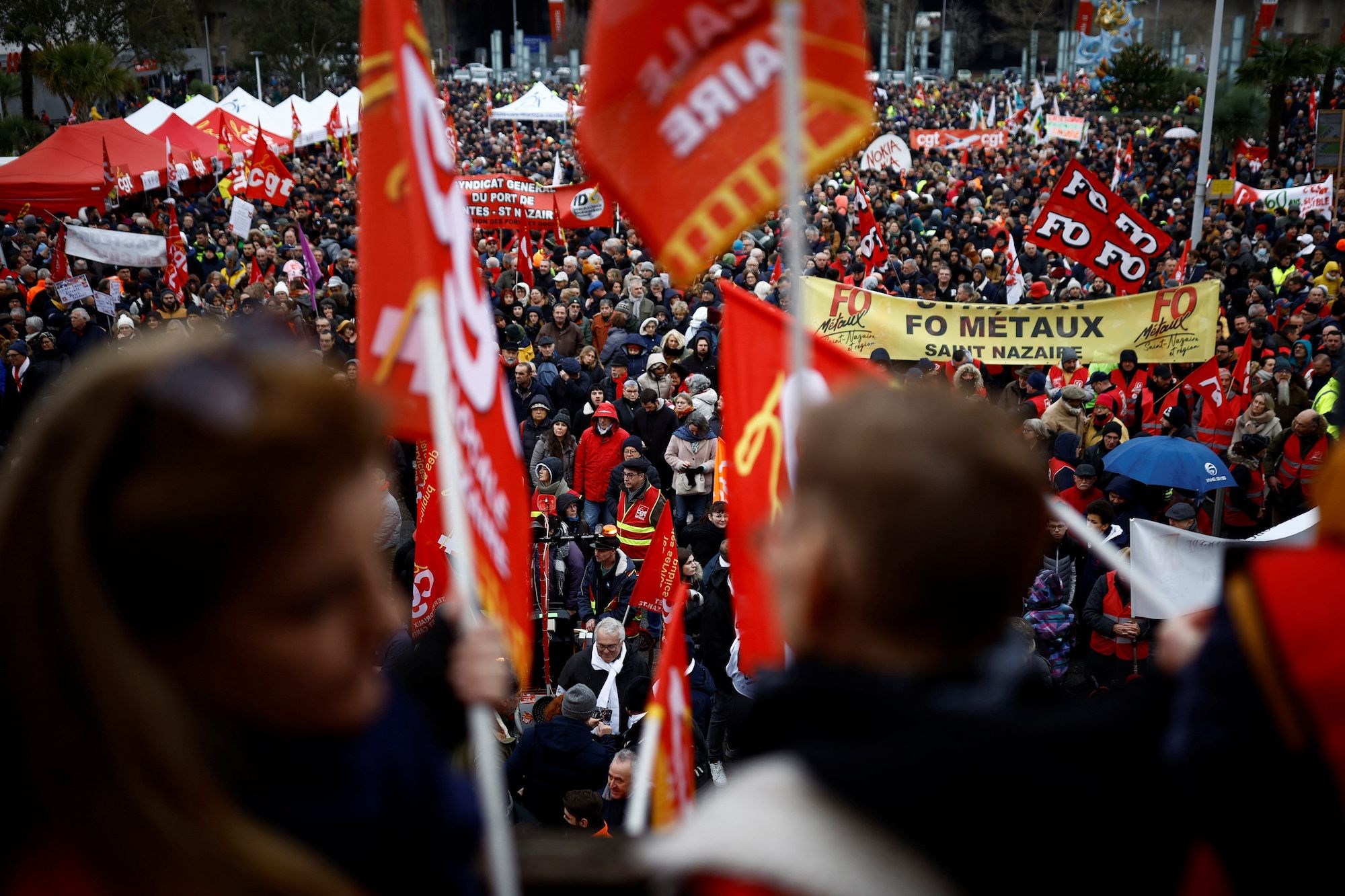Nationwide union strikes in France take place against Macron reforms
This is not the first time Macron proposes a pension reform and fails, as his last attempt to raise it in 2019 went down the drain after he retracted it following the Covid-19 pandemic.
-

French protesters demonstrate against the government's pension reforms in Saint-Nazaire as part of the nationwide strikes (Reuters)
Schools and businesses were shut, trains were grounded and workers walked out as part of nationwide protests on Thursday in France against the planned pension reform suggesting the retirement age be pushed by two years to 64.
French President Emmanuel Macron recently said his proposed reform is vital to ensure the pension system does not fail the people, but opinion polls proved otherwise, as the people seemed to reject the plan overall.
This is not the first time Macron proposes a pension reform and fails, as his last attempt to raise it in 2019 went down the drain after he retracted it following the Covid-19 pandemic.
Leader of the CGT union, Philippe Martinez, expressed that pensions are "all the discontentment," adding to the Public Senat TV, "Today is going to be a very big day of mobilization."
Read next: France's doctors protest excruciating work conditions amid high demand
According to the Labor Ministry, the retirement age push and the extension of the pay-in period would produce 17.7 billion euros ($19.1 billion) in annual pension contributions, which in turn would permit the pension system to break even by 2027. However, unions argue there are other methods to protect the pension system that include taxing the wealthy or upping contributions by employers.
Unions portrayed Thursday's nationwide strikes as just the beginning, as they expect more demonstrations to take place. Political Science professor Bruno Palier relayed: "What nobody can know, and even the unions don't know is whether French people are cross enough to ... block the country,"
More strikes expected
Although the pension reform still needs parliamentary approval and Macron already sees no winning ticket, he still has hopes it will get adopted and approved by the conservatives.
Only one in five high-speed train TGV lines was operating, and the SNCF rail operator confirmed that barely any local or regional trains were functioning as a result of the protests. Even the main primary school union announced that seven out of 10 primary school teachers expressed that they will strike as well.
The power supply was even reduced to eight nuclear reactors, including hydropower plants, to which utility group EDF added that more electricity workers are vowing to cut power supplies to protest the reforms.
TotalEnergies' chief executive Patrick Pouyanne, however, doesn't believe one whole day of nationwide strikes will make much of a change to impede refinery operations, but would eventually will if the strikes go longer. So far, the strikes have caused a reduction of France’s total refinery output by more than 60% - equivalent to 740,000 barrels of gasoline a day.
Macron and several of his ministers are anticipated to travel to Barcelona on Thursday for a meeting with the Spanish government in light of these events.
When strikes were also taking place in October, French government spokesperson Olivier Véran said: "We call for responsibility: Europe is at war. We are facing unprecedented climate challenges, the immediate need to solve the energy crisis, inflation that the government is fighting and unemployment. Yes, we need to discuss the level of wages and working conditions — we welcome social dialogue. However, we believe that now is not the time to call for a blockade of the state and interfere with the functioning of our economy. Now, without a doubt, is the worst moment for this," Veran said.

 4 Min Read
4 Min Read










